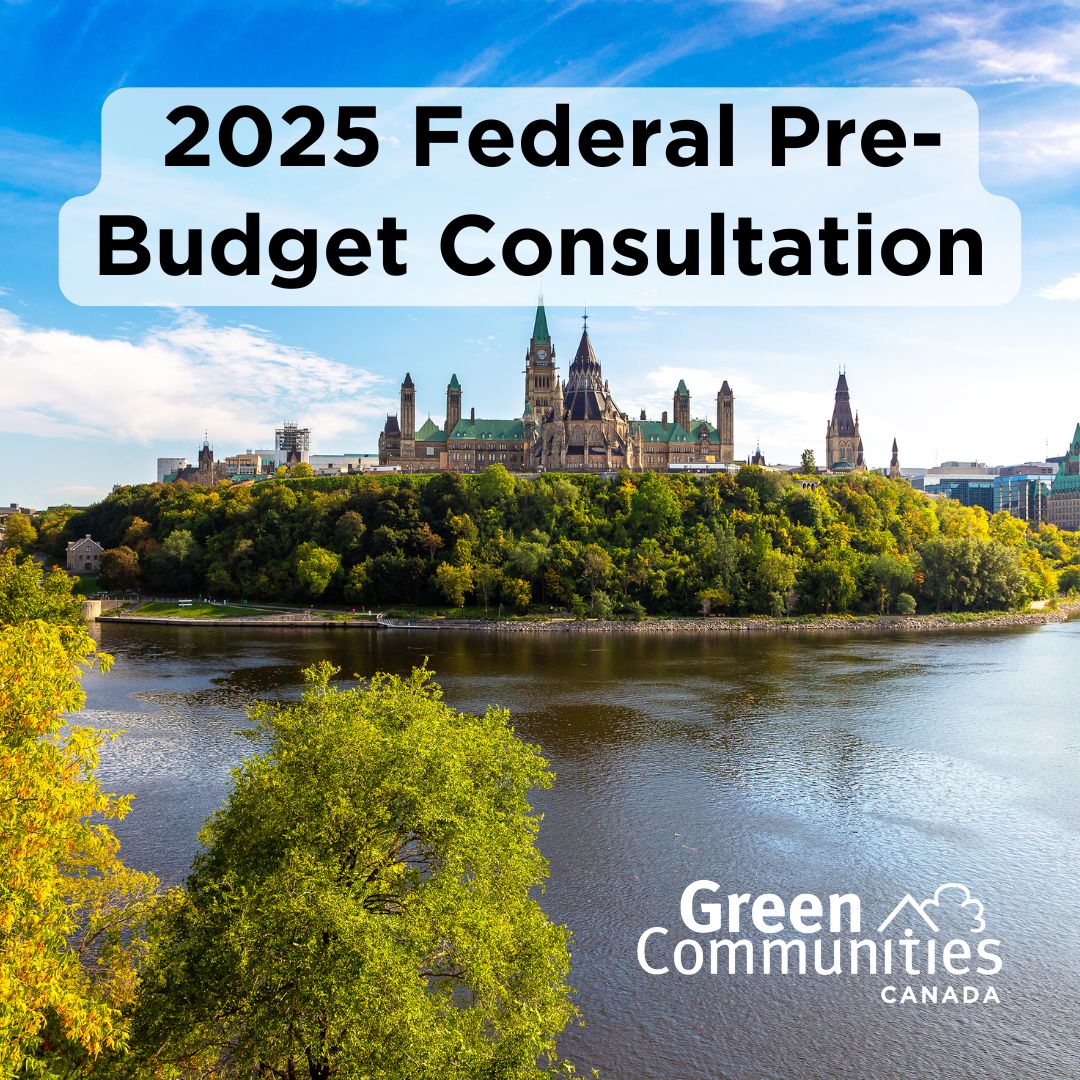Green Communities Canada was excited to make the following recommendations to the Standing Committee on Finance through the 2025 pre-budget consultation:
Reignite Canada’s domestic home retrofit industry
In April 2025, we released a report on the impacts of the Canada Greener Homes Program that supported retrofitting about 5% of Canadian homes. Not only will the $2.6 billion Federal investment lead to $3.8 billion in homeowner savings over the next 20 years, but the program also supported more than 75,000 jobs and reduced fossil fuel emissions by an equivalent of removing 200,000 cars from Canada’s roads. However, the program was abruptly cancelled in early 2024. 95% of homes still need to be retrofitted to hit Canada’s 2050 climate goals.
We’re requesting that you invest in a fresh start to reignite the retrofitting of Canada’s homes to create good, domestic jobs, drive down the costs of homeownership, and help achieve Canada’s 2050 climate goals. We recommend the following:
- Launch a new grant program for all homeowners with an emphasis on building envelope improvements using the EnerGuide system, including performance incentives for deep energy retrofits that achieve larger savings levels, and the development of a separate stream with a rebate for heat pump-only installations and
require heat pump right-sizing practices, - Expand the Canada Greener Homes Affordability Program budget and ramp up operations over time to reach 40,000 low to median-income Canadian households per year and,
- Expand the Canada Greener Homes Loan Program as a supplement to the grant program, offering larger zero-interest loans to help motivate deeper energy retrofits.
Invest in active and sustainable journeys to school
GCC is supportive of the $3 billion annual investment through the Canada Public Transit Fund beginning in 2026-27 to get Canadians moving. Based on our expertise leading the Canadian Electric School Bus Alliance (CESBA) and as a member of the Canadian Active Transportation Alliance (CATA), we make several recommendations:
- Support for CESBA recommendations, including: $375 million in federal funding by 2026, and an additional $2.5 billion in dedicated funding between 2027 and 2032. To support Canada’s net-zero transition, there’s a substantial need for capital to fund Electric School Bus adoption. Since these buses won’t reach price parity with internal combustion engine buses by 2040, the federal government must allocate additional funds now. To reach 100% adoption by 2040, in line with the federal target for medium and heavy-duty vehicle sales, almost 3,000 diesel models will have to be replaced next year.
- Support for CATA recommendations, including: Make permanent the dedicated Active Transportation Fund that is housed within the Canada Public Transit Fund with annual earmarked funding, and track and publicly report on annual spending. In addition, the National Active Transportation Strategy is set to expire next year, and we recommend its renewal with earmarked funding. Clearly defined goals and targets are vital to increasing active transportation usage in Canada, as is a clear plan and timeline on how we will get there. We also recommend that the Build Canada Strong plan include design elements that incorporate active transportation into Canadian communities across the country.
Embrace nature-based solutions
The Federal government is promoting and pursuing many initiatives that signal support for building more climate-resilient cities. Expanding support for community-led initiatives would recognize the role community-led actions play at the grassroots level and ensure that, as municipal projects evolve, they include and respect many community voices.
- We recommend the Federal government continue to fully fund the Nature Smart Climate Solutions Fund and expand opportunities to support urban climate resilience through nature-based solutions.

